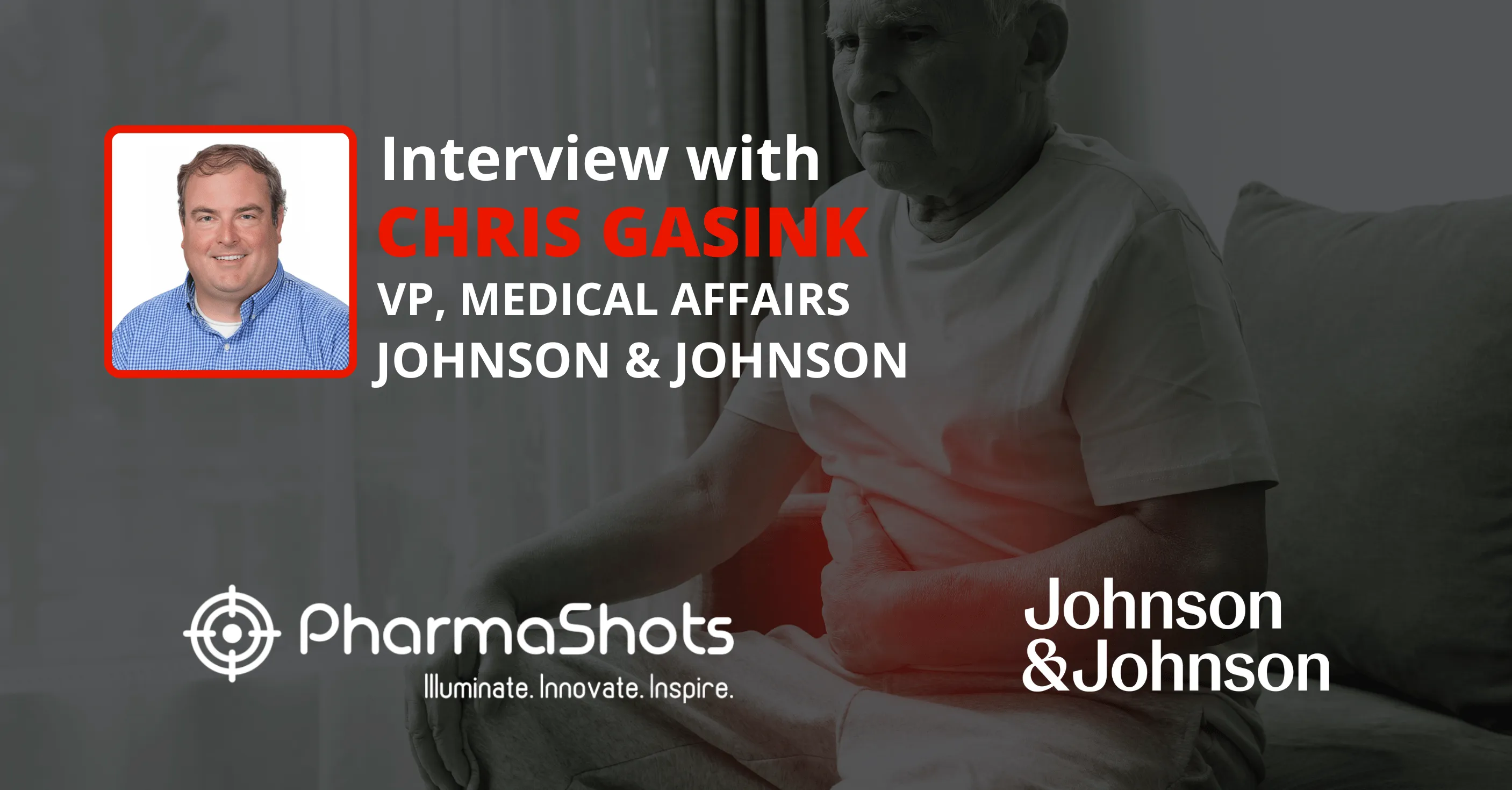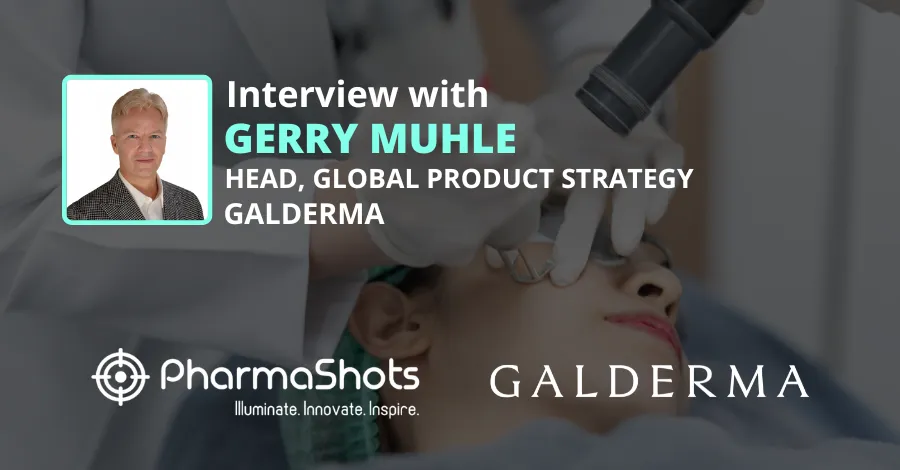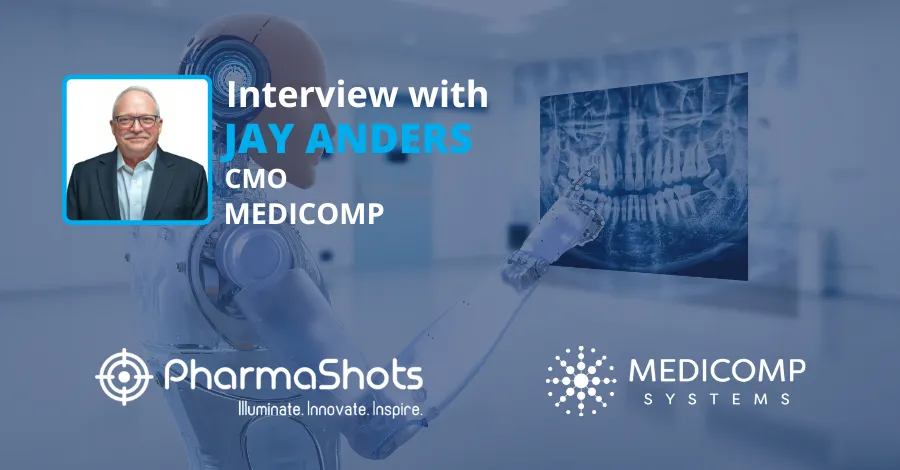
PharmaShots Interview: Accenture's Rich Birhanzel Shares Insight on the Investment in ixlayer
In an interview with PharmaShots, Rich Birhanzel, Senior Managing Director & Global Health Lead at Accenture shared his views on the investment in ixlayer to provide health solutions for diagnostic testing
Shots:
- The company has made a strategic investment in ixlayer through Accenture Ventures to expand access to virtual diagnostic health testing. The company's telehealth platform allows players across the healthcare ecosystem & provides convenient & scalable health testing in a virtual environment
- The ixlayer platform enables the rapid launch of health testing programs and makes lab testing accessible from the comfort of patients homes
- Additionally, ixlayer is part of Accenture Ventures Project Spotlight that offers extensive access to Accenture's expertise
Tuba: What are the key features of the ixlayer platform?
Rich: ixlayer is a leader in technology-based solutions for diagnostic testing focusing on transforming the telehealth industry with innovative laboratory testing platforms for all areas of the health ecosystem. The platform provides healthcare providers, payors, and governments with the infrastructure to scale products and solutions that deliver patient care from the comfort of their homes. A few features that make ixlayer a patient-centric and distinguished platform are that 1) the physician and patient can use the platform to order a patient a test, 2) the platform will coordinate a sample collection process at a facility or ship an at-home collection kit to the patient overnight with instructions, 3) the platform can triage the testing to any lab that has validated the test so patients have access to multiple labs, getting their results as fast as possible, and 4) results are delivered in a real-time patient-friendly and easy to understand reports in a HIPAA compliant patient, clinical, and organization portal. -Poorya Sabounchi, COO of ixlayer
Tuba: How did this technology help during the global pandemic, COVID-19?
Rich: ixlayer's COVID-19 diagnostic testing platform currently supports over 1.5 million patients, has launched over 1,100 testing programs since 2020 alone, and over 3 million lab tests have been performed in the last year. The testing program has been developed to expand access to COVID-19 risk screening and active disease testing. In March of 2020, ixlayer launched its COVID-19 Clinical Testing platform for labs and health systems that allows for COVID-19 specific content and user flows to give physicians/health systems, organizations, and university groups the ability to quickly connect with labs to deliver COVID-19 testing. The ixlayer COVID-19 Clinical Test platform gathers real-time data, including demographics on positive and negative tests by age, gender, and geographic location - quickly identifying trends and hotspots in disease transmission. The technology streamlined the collaboration between the CDC, state health departments, and healthcare professionals to be patient and clinician-facing.
In 2020 and 2021, ixlayer launched health testing programs for Fortune 1000 Companies and sector leaders such as Illumina, Eurofins, PPD, Hims&Hers, and CIC Health, and the platform has been used by major institutions such as Stanford University, the U.S. Coast Guard, and Mass General Hospital to help with COVID-19 testing. -Poorya Sabounchi, COO of ixlayer
Tuba: Is ixlayer's diagnostic testing applicable beyond COVID? If yes, what are those, and is there some analysis, data available for our reader?
Rich: Part of ixlayer's mission is striving to bring the ease of online deployment that's a hallmark of eCommerce providers, along with the 'anyone can play' versatility of payments platforms like Stripe - aka they are essential Shopify the testing experience, to include not only COVID-19 tests but any other lab-based diagnostic tests including those for diabetes, STDs, etc.
ixlayer is agnostic to the lab or how the test is performed (for example at-home, drive-through at the clinic), allowing testing programs to be deployed across large populations within weeks. As many have learned this past year, billions of lab tests are ordered every year, and they are deployed to hundreds of thousands of labs through a highly fragmented system incapable of quickly scaling up. Backed by top-notch forward-thinking investors such as Accenture, ixlayer is becoming the platform that connects all the key stakeholders -- from patients, healthcare professionals, and labs -- to transform the diagnostics industry. -Poorya Sabounchi, COO of ixlayer
Tuba: Discuss more about Accenture Ventures work?
Rich: Accenture Ventures is a corporate venture capital group dedicated to finding, investing, and partnering with early-stage tech startups and entrepreneurs who can help fill strategic gaps for the Global 2000. It serves as a bridge to the global innovation ecosystem, unlocking growth opportunities for our clients by bringing them together with best-in-class emerging enterprise startups to accelerate their transformation. Put another way, Accenture Ventures looks at the top challenges our clients are facing today and looks for and qualifies emerging, early-stage startups that have the best potential to fill important whitespaces.
Additionally, through the Accenture Ventures Project Spotlight program, we go beyond making capital investments and offer unprecedented access to our technology domain expertise and enterprise clients. Startups co-innovate with us at our Innovation Hubs, Labs, and Liquid Studios, working with subject matter experts to adapt their solutions to the enterprise market and scale faster and more effectively. -Tom Lounibos, Managing Director, Accenture Ventures
Tuba: Is only healthcare/ diagnostics the focus for Accenture Ventures? If not, what are other focus areas? Can we talk about work in the area of pharma & healthcare?
Rich: As mentioned in response to the above question, we look to connect early-stage companies with our clients 'across industries' where the connection has the potential to help fill a gap or need in the given sector. That said, the healthcare and pharmaceutical industries continue to be a focus. For example, following years of collaboration we've expanded our relationship with Springboard Enterprises, a network of influencers, investors, and innovators dedicated to building high growth companies led by women with the specific goal of connecting Springboard portfolio companies that offer digital health solutions with Accenture clients in the healthcare industry. -Tom Lounibos, Managing Director, Accenture Ventures
Tuba: What makes Accenture want to invest in ixlayer/the importance of the investment?
Rich: We are confident that ixlayer is leading the way toward connecting the many 'often siloed' components of the healthcare system under one umbrella. Ultimately this will provide simplified, end-to-end services across the healthcare ecosystem, and we are excited to be a part of this growth. -Tom Lounibos, Managing Director, Accenture Ventures
Tuba: How ixlayer platform will be able to meet the demand for virtual healthcare services?
Rich: Over the next 5 years, as telehealth offerings increase, so will the need to coordinate the entire healthcare ecosystem, mandating a cloud-based system to seamlessly connect data and coordinate physician, lab, patient, insurance, and delivery services effectively. Given that solutions can be customized for scale, ixlayer can facilitate health testing programs for any organization looking to provide more patient-centered offerings during the pandemic and beyond. This can include government institutions, large-scale venues, health systems and payors, digital health companies, and enterprises. Because of this, ixlayer is helping propel the availability, accessibility, and affordability of diagnostic testing for the population - across all medical and telehealth needs.
As a key company focus, ixlayer is working on network expansion, which entails integrating into more key stakeholders in the healthcare ecosystem. As ixlayer partners with more labs and diagnostics service providers, their value proposition strengthens the overall telehealth system. -Poorya Sabounchi, COO of ixlayer
Tuba: Is Accenture planning to couple/ combine ixlayer's solutions with any telemedicine solutions within or outside the Accenture portfolio. If yes, what are those?
Rich: While we can't go into specifics at this time, we're looking forward to connecting ixlayer with relevant companies and organizations, with the goal of creating greater, joint value for all parties. -Tom Lounibos, Managing Director, Accenture Ventures
Source: Tribune India

About Author: Rich Birhanzel is the Senior Managing Director & Global Health Lead at Accenture. He earned a master's in Business Administration in Health Systems from the University of Connecticut. He brings more than two decades of leadership experience to Accenture Health
Related post: PharmaShots Interview: Prothena's Brandon Smith Shares Insight on the Acquisition of Prothena and Novo Nordisk

This content piece was prepared by our former Senior Editor. She had expertise in life science research and was an avid reader. For any query reach out to us at connect@pharmashots.com














